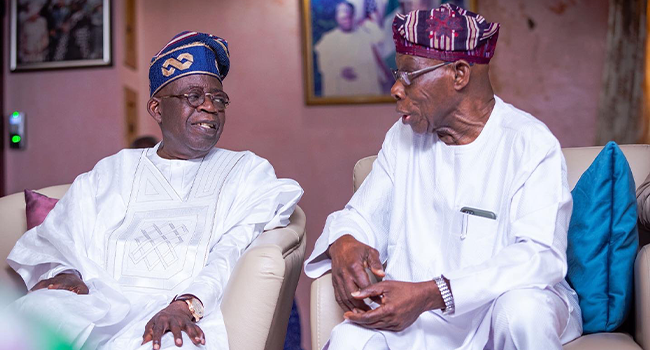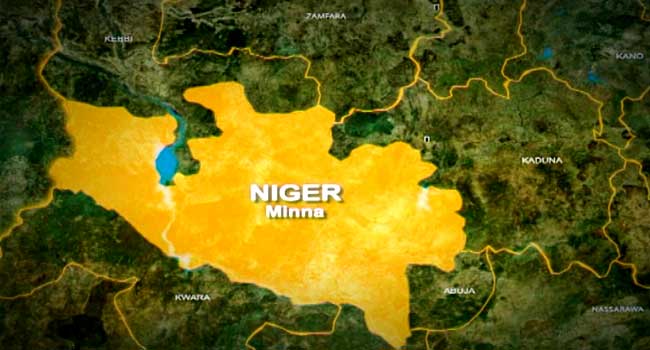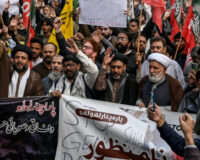Former President Olusegun Obasanjo has faulted President Bola Tinubu’s implementation of the fuel subsidy removal and the unification of the exchange rate.
He said while they are necessary, their implementation was faulty. In a Sunday statement, Obasanjo’s spokesman Kehinde Akinyemi said his principal made the comment at a colloquium: ‘Nigeria’s Development: Navigating the Way Out of the Current Economic Crisis and Insecurity’ at the Paul Aje Colloquium (tPAC) in Abuja on Saturday.
“Today, the government has taken three decisions, two of which are necessary but wrongly implemented and have led to the impoverisation of the economy and of Nigerians. These are the removal of subsidy, closing the gap between the black market and official rates of exchange and the third is dealing with a military coup in Niger Republic.
“The way forward is production and productivity which belief and trust in government leadership will engender. No shortcut to economic progress but hard work and sweat,” he said.
Obasanjo also took a swipe at those against his position on the much-touted refurbished refinery at Port Harcourt, Rivers State, describing them as “sycophants and spin doctors”.
He declared that such people failed to remember that the attempt that was made in 2007 to partly privatise the refineries was made after a thorough study of the situation, hence his knowledge and a better understanding of the situation before making his decision late last year.
On what could be described as his position on 365 days of President Tinubu’s administration, the former president also posited ways out of the situation in the country, including a 25-year development agenda.
He said: “The economy does not obey orders, not even military orders. I know that. If we get it right, in two years, we will begin to see the light beyond the tunnel. It requires a change of characteristics, attributes, and attitudes by the leadership at all levels to gain the confidence and trust of investors who have alternatives.
“Total Energy has gone to invest $6 billion in Angola instead of Nigeria. If the truth must be stated, the present administration has not found the right way to handle the economy to engender confidence and trust for investors to start trooping in.
“They know us more than we know ourselves. And now they are laughing at us, not taking us seriously. We have to present ourselves in such a way that we will be taken seriously. If the existing investors are disinvesting and going out of our country, how do we persuade new investors to rush in? We can be serious if we choose to be but we need to change from transactional leadership in government to transformational and genuine servant leadership.
“With change by us, the investors will give us the benefit of the doubt, and security will be taken care of on a sustainable long-term basis, they will start to test the water. With the right economic policies, attribute of integrity, and honesty of purpose, all should be well with all hands on deck and the government should become a catalyst for development, growth, and progress.
“Tinkering with the exchange rate is not the answer. The answer is consistency and continuity in policy to ensure stability and predictability. That way, we will be sure to incentivize domestic and foreign investment. There must be honesty and transparency in government dealings and contracts and not lying with deception about these issues. When the government is seen as pursuing the right policy, the private sector will go for production and productivity. Change is possible but it must begin with the leadership.”
The former president’s reaction to the refinery issue was coming barely six months after a claim that the refinery would begin operation in January. He noted that to get out of the current situation of the country, the government and the governed needed to look at the past and the present, and asked: How do we get here?
“Looking at the topic of today’s occasion, the question I would ask is, how do we navigate our way out of these crises and pave the path towards a more secure and prosperous Nigeria? I believe the answer to this requires a multi-faceted approach that addresses the root causes of these challenges,” he said. “The central questions are: where were we? And how did we get to where we are today?”
Obasanjo said, “Firstly, we must know where we are coming from. Our economy has consistently suffered from poor policies, lack of long-term sustainable policies, discontinuity, adhocry, and corruption firmed on personal greed, avarice, incompetence, lack of knowledge and understanding, and lack of patriotism.”







